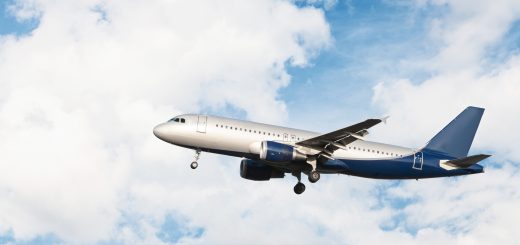Air freight shipping to International Markets: Tips and Tricks for success
Introduction
Air freight shipping to international markets has become integral to global trade. Transporting goods around the world is faster, more efficient and secure with it. In order to succeed, air freight shipping requires understanding the tips and tricks that can make the process easier.
Air freight shipping to international markets involves transporting goods by air between countries. It’s an important element of international trade because it makes moving goods across borders fast and reliable. It’s beneficial for time-sensitive shipments, such as perishable goods or goods that require urgent delivery. In this article, we’ll discuss the tips and tricks to help you carry out successful air freight shipping to international markets.
Understand International Trade Regulations and Shipping Requirements
Keeping up with the regulations and requirements set by the countries of origin and destination is essential when shipping internationally. These regulations must be followed to avoid delays, fines, or even having your goods seized. Thus, it is important to research shipping requirements and understands the country of origin and destination’s rules and regulations.
Some standard shipping requirements and regulations include the following:
- Export and import licenses
- Tariffs and duties
- Sanitary and phytosanitary regulations
- Packaging and labelling requirements
- Hazardous materials regulations
- Trade agreements and regulations
Researching and understanding these regulations and requirements is critical to successful air freight shipping to international markets. Make sure to consult with experts in international trade and logistics, such as freight forwarders or customs brokers, to ensure compliance.
Choose the Right Air Cargo Carrier
Choosing a suitable air cargo carrier is critical to successful air freight shipping to international markets. Factors to consider when selecting an air cargo carrier include:
- Transit times
- Route network
- Capacity
- Reliability
- Cost
When choosing an air cargo carrier, your specific needs and requirements should be put into consideration. Shipping time-sensitive goods, for example, requires air cargo carriers with fast transit times. If you’re shipping to a remote location, you’ll want an air cargo carrier with an extensive route network. Research and compare different air cargo carriers to find the best fit for your needs.
Proper Packaging and Labeling
Proper packaging and labelling are critical to successful air freight shipping to international markets. Poor packaging and labelling can damage your goods, cause transit delays, and cause customs clearance issues. Here are some tips for proper packaging and labelling:
- Use sturdy packaging materials that can withstand the rigours of air transport
- Secure your goods with appropriate cushioning and bracing
- Use clear and accurate labelling, including the origin and destination addresses, weight, and dimensions of the package
- Follow the packaging and labelling requirements of the countries of origin and destination
- Avoid using any prohibited or restricted materials in your packaging
Streamline Customs Clearance
Efficient customs clearance is critical to successful air freight shipping to international markets. Delays in customs clearance can lead to increased transportation costs, missed delivery deadlines, and potential fines. Below are some tips for streamlining customs clearance:
- Ensure that all necessary documentation is complete and accurate
- Research and understand the customs clearance requirements of the countries of origin and destination
- Work with a reputable customs broker who can help navigate the customs clearance process
- Avoid shipping prohibited or restricted goods
- Be prepared to provide additional information or documentation if requested by customs authorities
Managing Transportation Costs
Air freight shipping can be expensive, so managing transportation costs is essential for success. Below are some tips for reducing transportation costs:
- Choose the right carrier: The best way to find the most affordable service is to compare rates and services across different carriers. Some carriers may offer volume discounts or special rates for certain destinations.
- Consolidate shipments: If you have multiple shipments going to the same destination, consolidate them into one larger shipment to save on transportation costs.
- Use intermodal transportation: Consider using a combination of air, sea, and land transportation to reduce transportation costs. For example, you could use air freight for long-haul transport and switch to truck or rail for shorter distances.
- Optimize packaging: Efficient packaging can reduce transportation costs by maximizing the use of cargo space. Consider using lightweight and compact packaging materials to reduce weight and volume.
- Plan: Last-minute or urgent shipments can be expensive, so plan to avoid rush fees and expedited shipping charges.
Utilising these cost-saving measures will help you reduce your transportation costs.
Conclusion
In conclusion, air freight shipping to international markets can be complex, but it can be a smooth and efficient process with the proper knowledge and approach. Understanding the regulations and shipping requirements, choosing the suitable air cargo carrier, proper packaging and labelling, streamlining customs clearance, and managing transportation costs are critical to successful air freight shipping.
By following the tips and tricks discussed in this blog post, you can ensure that your air freight shipments to international markets are successful. Remember to research and understand the regulations and requirements, choose the right air cargo carrier, properly package and label your goods, streamline customs clearance, and manage transportation costs.
Success in air freight shipping to international markets requires knowledge, preparation, and attention to detail. By following these tips and tricks, you can optimise your air freight shipping process and achieve success in your international trade endeavours.
Working with a reputable freight forwarder or customs broker like Fortune Global Shipping can also help you navigate the complexities of air freight shipping to international markets. In addition, they can provide valuable insights and expertise to ensure your shipments succeed.
At Fortune Global, we have the experience and expertise to help you navigate through international markets. Contact us today to request a free quote.



